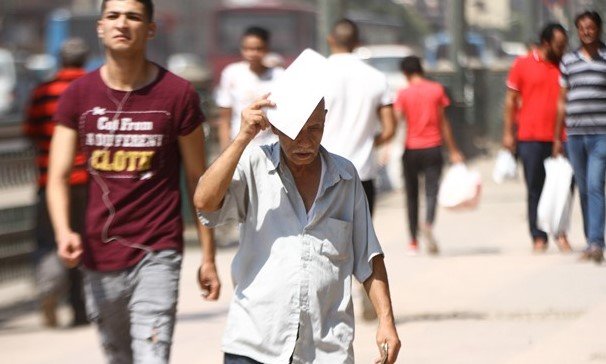Egypt is grappling with scorching temperatures across the country on Tuesday, September 2, 2025, as the Egyptian Meteorological Authority warns of extreme heat and high humidity in most regions. Cairo is set to reach 36 degrees Celsius, with similar conditions affecting coastal areas and southern cities, prompting concerns for public health and daily activities.
Current Weather Conditions in Egypt
Hot and humid weather dominates Egypt today, making conditions feel even more intense. The heat index could rise by two to four degrees due to elevated humidity levels, especially in urban centers like Cairo.
Mist is forming on roads in several areas, including highways near the North Coast, Lower Egypt, and Central Sinai. Winds are picking up occasionally, which might offer brief relief but also stirs up dust in open areas.
This pattern ties into a broader heat wave that has been building over recent days. Just last week, parts of the country saw temperatures climb to 40 degrees Celsius, straining resources and leading to increased energy use for cooling.
Temperature Forecasts for Major Cities
Meteorologists predict a slight uptick in temperatures continuing from recent trends. Cairo’s high of 36 degrees Celsius aligns with forecasts showing very hot days ahead.
Here is a breakdown of expected highs in key locations:
| City | High Temperature (°C) | Notes |
|---|---|---|
| Cairo | 36 | Humid, mist possible |
| Alexandria | 32 | Coastal winds |
| Marsa Matruh | 32 | Moderate sea waves |
| Sohag | 40 | Very hot, low humidity |
| Qena | 41 | Intense afternoon heat |
| Aswan | 42 | Highest in the south |
Southern regions like Aswan face the brunt, with readings pushing into the low 40s. Nighttime offers little respite, as moderately hot and humid conditions persist into the early morning hours.

These figures come amid a summer that has already broken records. In June 2024, Egypt recorded a staggering 50.9 degrees Celsius in some areas, highlighting a trend of intensifying heat waves linked to climate patterns.
Coastal areas are not spared, with the Mediterranean Sea seeing waves up to 2.5 meters, disrupting navigation in places like the Gulf of Suez where winds reach 60 kilometers per hour.
Health Risks and Safety Measures
Extreme heat poses serious risks, including dehydration and heatstroke, particularly for vulnerable groups like the elderly and outdoor workers. Authorities urge people to limit sun exposure during peak hours.
To stay safe, consider these practical tips:
- Drink plenty of water throughout the day to combat humidity effects.
- Wear light clothing and use hats or umbrellas for shade.
- Avoid strenuous activities between noon and 4 p.m. when heat peaks.
- Check on family members, especially those with health conditions.
Recent events show the real impact. During a similar heat wave last month, hospitals reported a spike in heat related illnesses, prompting public awareness campaigns. Logical steps like these can prevent issues, drawing from patterns seen in past summers.
Impact on Daily Life and Economy
The heat is disrupting routines, from farming to tourism. Farmers in the Nile Delta face challenges with irrigation, while tourists in historic sites like the pyramids endure uncomfortable conditions.
Energy demands are surging as people crank up air conditioners, potentially straining the power grid. In Cairo, traffic might slow due to mist on roads, affecting commutes.
This mirrors broader trends in the region. Neighboring countries have seen similar waves, leading to school closures and work hour adjustments. In Egypt, businesses in sectors like construction often pause midday to protect workers.
Looking Ahead to Weather Trends
Forecasters expect the heat to linger into the week, with possible fluctuations. A temporary drop might occur by mid September, but long term patterns suggest hotter summers ahead due to global warming.
Experts point to data showing average temperatures rising over the past decade. For instance, Cairo’s summer averages have increased by about 1.5 degrees since 2010, based on meteorological records.
Residents should monitor updates, as sudden changes like stronger winds could alter conditions quickly.
What do you think about this heat wave? Share your experiences in the comments below and pass this article along to friends who might need these tips.
